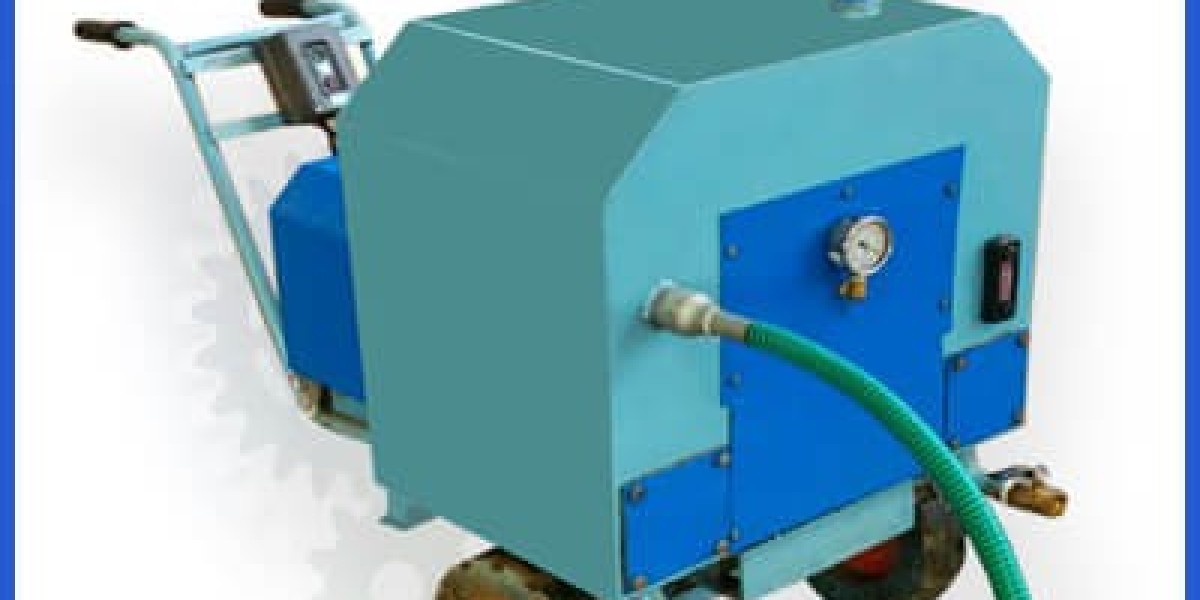Sun Industries Private Limited has spent Fifteen years in the engineering and manufacturing of construction work machinery and has been a forerunner in bringing mechanization to the construction process. We at Sun Industries believe that mechanization of construction work leads to a greater output and thus we bring to you the finest quality of machines that can not only be more productive than the traditional way of construction process but also lead to a more professional-quality work. Our machines go through rigorous quality checks by our inspection experts to ensure that they are sturdy, accurate and durable. One such machine we offer for sale is a Vacuum Dewatering Pump.
WHAT IS A VACUUM DEWATERING PUMP?
The Vacuum Dewatering Pump 7.5hp is used to lower the amount of water in the concrete by 15 to 25 percent. The dewatered concrete has been compressed and hardened to the point that it may be walked on without leaving traces or footprints.
During the service life of traditional concrete flooring, defects such as drying shrinkage, surplus water in the mixture, inappropriate level control, bad finishing and curing processes, and additional overhead on the concrete are commonly observed. A technique is developed to improve the qualities of traditional concrete floors in order to overcome their shortcomings.
The method is known as vacuum dewatering because of its uniqueness, in which excess water from cement slurry is removed to increase its strength, sturdiness, and other properties of the material by lowering the water to cement ratio to the ideal level instantly after the mixture is positioned, generally on floors and other flooring purposes.
Also Product:
WHY DO WE NEED VACUUM DEWATERING?
The Vacuum Dewatering Flooring System, or vacuum dewatering concrete flooring, is ideal for severe wear and strong traffic movement. It's ideal for a variety of applications, including road pavements, railway stations, industrial floors, bridges, Roller Compacted Concrete roadways, and pre-cast concrete goods. The VDF system is a successful solution for overcoming the conflict between effectiveness and high potency demands. This approach allows for both effectiveness and great strength to be achieved at the same time. The technique may be used to create high-quality concrete floors at a lower cost, resulting in increased toughness, resilience, longevity, a good finish, and speedier work.
There are a few key reasons why vacuum dewatered flooring is selected for enormous flooring projects such as rail platforms, industrial floors, bridges, Roller Compacted Concrete roads, and pre-cast concrete products. An unchecked water loss from the cement structure can have negative consequences, such as plastic shrinkage which leads to cracking. Heavy concrete leaking can have a detrimental impact on surface qualities including wear resistance. It provides a cost-effective and time-saving compression technology for concrete with moderate to high workability.
Related Products:
Sand Screening Machine Price
Material Handling Trolley
Electric Concrete Vibrating Machine
Power Trowel Machine Price
HOW DOES A DEWATERING VACUUM PUMP WORK?
In the former works, a cement mortar with high workability was used as a standard. The introduction of a vacuum to the topmost layer of concrete results in a considerable quantity of vacuum on the concrete surface because new concrete comprises a network of channels filled with water. As a consequence, a considerable volume of water is drained from the cement at a specific depth. A vacuum is created by connecting porous matting to a vacuum pump. Vacuum concrete has a stronger strength, density, lower permeability, and improved durability since the ultimate water to cement ratio before hardening is lowered.
BENEFITS OF USING A VACUUM DEWATERING PUMP:
The ultimate strength of the concrete is increased by about 25 percent.
A sufficient reduction in the permeability of the concrete
Vacuum concrete stiffens quickly enough that the formwork can be removed only after 30 minutes of casting, even on 20 foot high columns.
This has a significant economic benefit, particularly in the precast industry, since the forms are regularly reused.
The binding strength of vacuum concrete is 20 percent higher than that of normal concrete.
Vacuum concrete has a greater density than ordinary concrete.
The top 1/16 inch of vacuum concrete's top is very abrasion resistant and is completely devoid of pitting. These properties are particularly important in the building of concrete structures that will come into touch with fast-moving water.
It adheres well to existing concrete, making it suitable for resurfacing road slabs and other repairing works.
TYPES OF VACUUM DEWATERING PUMP WE OFFER:
Vacuum dewatering pump 5HP: This semi-automatic machine is driven by a 5 HP 3 Phase motor that requires a voltage of 415 V or 50 Hz and generates up to 2800 RPM. This machine is accessorized with a water inlet and outlet pipe, two valves, a pressure gauge, a top mat, and a bottom mat.
Our machinery is built to suit the emerging needs of the construction industry and we strive to keep our customers satisfied with our products, which is why our Vacuum Dewatering Pump is made with the greatest of precision using the finest quality metals and other raw materials. So do not let the traditional style of construction ruin your performance, meet the urban need of mechanization of your construction works and contact us to order a Vacuum Dewatering Pump for yourself today!
Contact Us -
Add – No. 59, Dharnidhar Estate, Panna Estate Road,
Rakhial Ahmedabad - 380 023, Gujarat, India.
Phone: +91 98250 39107
Website: https://www.sunind.in/
Email ID: info@sunind.in








